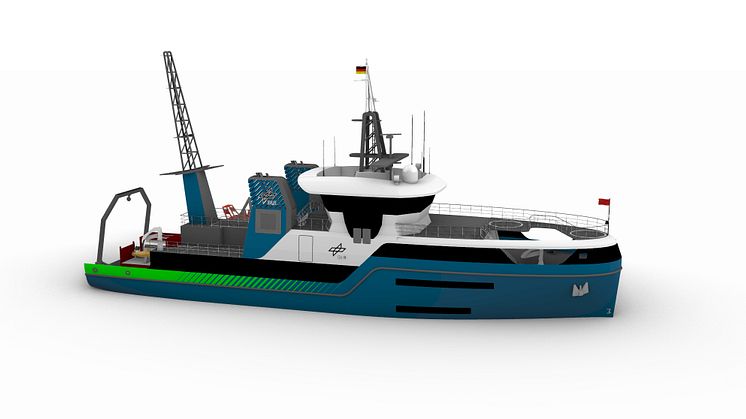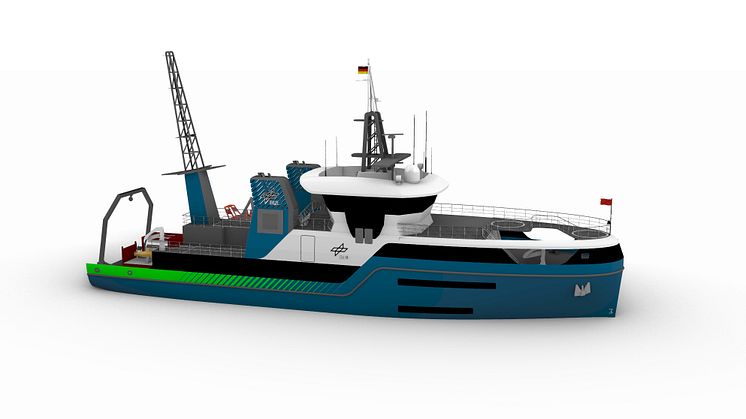
News -
DLR Awards Contract for New Research Vessel to Lloyd Werft
The German Aerospace Center (DLR) has commissioned Lloyd Werft in Bremerhaven to build a new research vessel. The contract was signed by both parties on February 3, 2025. The base ship will cost around 36 million euros. With the ship, DLR is offering the maritime industry the opportunity to research innovative, climate-friendly propulsion concepts together. Completion is planned for summer 2027.
“The new DLR research vessel will be a unique laboratory for real-life tests. At the same time, it will open up new opportunities for public stakeholders in the digital, climate-friendly, competitive and safe transformation of the maritime mobility and economic area. With its interdisciplinary research approach, DLR is also a sought-after partner for industry and public authorities in the maritime sector,” emphasizes DLR Executive Board Chairwoman Prof. Anke Kaysser-Pyzalla. “In Lloyd Werft, we have a competent partner for the construction of this unique ship that combines tradition and innovation at the Bremerhaven site.”
Friedrich Norden, Managing Director of Lloyd Werft Bremerhaven, says: “We are delighted to be supporting DLR's valuable research projects with this unique project. In a short space of time, we are providing an innovative platform that will make it possible to test future maritime energy generators under realistic on-board conditions. This flagship project underlines the importance of maritime research in Germany and makes a significant contribution to actively shaping the maritime energy transition. A commitment shared by both the Lloyd Werft workforce and the entire Rönner Group. Furthermore, this order is proof that Lloyd Werft is not only a strong partner in the repair and conversion segments, but also in new construction, especially for special ships and sophisticated individual structures.”
The DLR Institute of Maritime Energy Systems in Geesthacht and Kiel is researching and developing new solutions for using renewable energy in the maritime sector. Together with the Hamburg-based engineering firm SDC Ship Design & Consult, DLR has developed the overall design for the new research vessel, which is now being built by Lloyd Werft.
In this way, DLR is promoting climate-friendly shipping: it is focusing on alternative propulsion technologies without fossil fuels. In the ship's specially designed test engine room, DLR researchers will test technologies based on hydrogen and batteries - also together with commercial enterprises from the maritime industry. Components that have not yet been certified, such as energy converters or reformers, can also be tested under real conditions. The tests will focus on how the energy generated can be safely fed into the on-board network and thus used for propulsion.
The ship will be 48 meters long and 11 meters wide, with a draught of 3.2 meters. The ocean-going vessel will mainly sail on the North Sea and Baltic Sea for one- to multi-day test trips with a maximum of 20 people on board. After completion, the ship will have its home port in Kiel.
The research vessel will also have a digital twin. Using this digital image, DLR scientists will be able to carry out comprehensive computer simulations to ensure the safe and efficient operation of the real ship. For example, propulsion components or digital navigation systems can be examined in order to prepare and accompany tests in practice.
DLR thus offers the maritime industry a platform for the development, integration, testing and certification of resource-saving, digital and intelligent maritime systems. Authorities with security tasks will also benefit from the new research vessel. This is because it is also intended for use in DLR's civil security and defense research projects.

